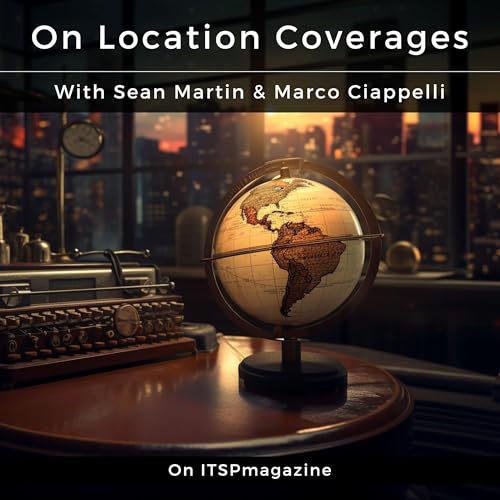Guest and HostGuest: Marco Ciappelli, Co-Founder, ITSPmagazine and Studio C60 | Website: https://www.marcociappelli.com
Host: Sean Martin, Co-Founder at ITSPmagazine, Studio C60, and Host of Redefining CyberSecurity Podcast & Music Evolves Podcast | Website: https://www.seanmartin.com/
Show NotesIn this candid episode of Music Evolves, Sean Martin and Marco Ciappelli unpack the creative, ethical, and deeply personal tensions surrounding AI-generated music—where it fits, where it falters, and where it crosses the line.
Sean opens with a clear position: AI can support the creative process, but its outputs shouldn’t be commercialized unless the ingredients—i.e., training data—are ethically sourced and properly licensed. His concern is grounded in authorship and consent. If a model learns from unlicensed tracks, even indirectly, is it sampling without credit?
Marco responds by acknowledging how deeply embedded influence is in all creative acts. As a writer and musician, he often discovers melodies or storylines in his own work that echo familiar structures—not out of theft, but because of lived experience. “We are made of what we absorb,” he says, drawing parallels between human memory and how AI models are trained.
But the critical difference? Humans feel. They reinterpret. They falter. They declare their intent. AI does none of that—at least, not yet.
The discussion isn’t anti-technology. Instead, it’s about boundaries. Both Sean and Marco agree that tools like neural networks can be fascinating collaborators. But when those tools start to blur authorship or generate perfect replicas of a human’s imperfection—say, the crackle of a vinyl or the slide of a finger across a string—what are we really listening to? And who, if anyone, should profit from it?
They wrestle with questions of transparency (“Did you write that… or did AI?”), authorship (“If you like it but don’t know it’s AI, does it matter?”), and commercialization (“Is it still your art if someone else feeds it to a machine?”). And perhaps most importantly, they invite you to answer for yourself.
🎧 At the end of the episode, Sean and Marco each create a 1-minute piece of AI-generated music based on their own interpretation of the conversation. Their challenge: same topic, different vibe. The listener’s challenge: can you feel the difference?
ResourcesNewsletter (Article, Video, Podcast): From Sampling to Scraping: AI Music, Rights, and the Return of Creative Control: https://www.linkedin.com/pulse/from-sampling-scraping-ai-music-rights-return-control-martin-cissp-flxde/
More From Sean Martin on ITSPmagazineMore from Music Evolves: https://www.seanmartin.com/music-evolves-podcast
Music Evolves on YouTube: https://www.youtube.com/playlist?list=PLnYu0psdcllTRJ5du7hFDXjiugu-uNPtW
On Location with Sean and Marco: https://www.itspmagazine.com/on-location
ITSPmagazine YouTube Channel: https://www.youtube.com/@itspmagazine
Be sure to share and subscribe!
Hosted by Simplecast, an AdsWizz company. See pcm.adswizz.com for information about our collection and use of personal data for advertising.
 41 mins
41 mins 34 mins
34 mins 35 mins
35 mins 53 mins
53 mins 30 mins
30 mins 10 mins
10 mins 24 mins
24 mins 56 mins
56 mins
